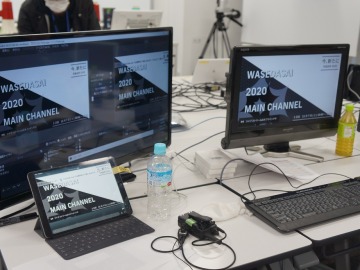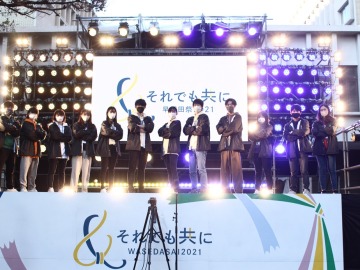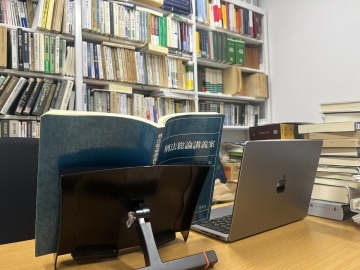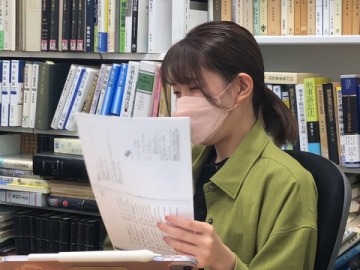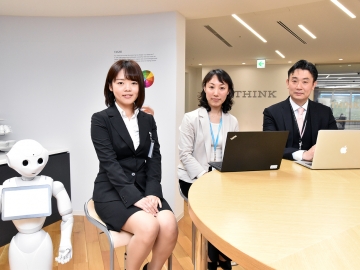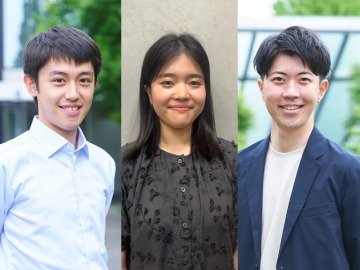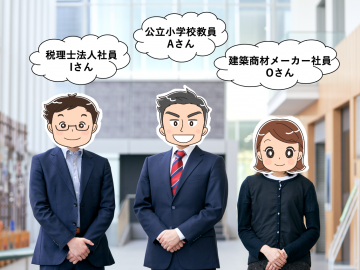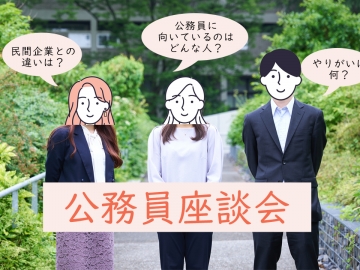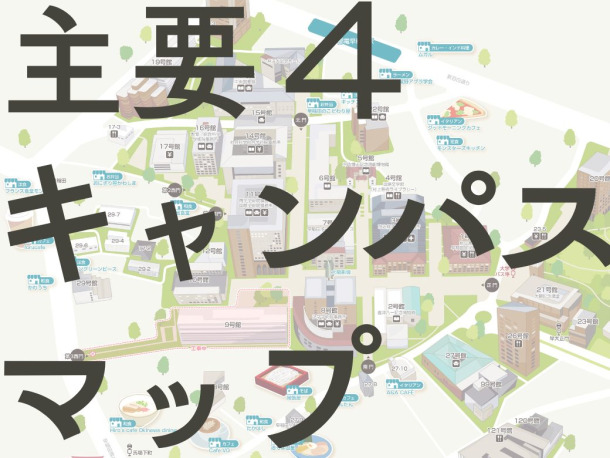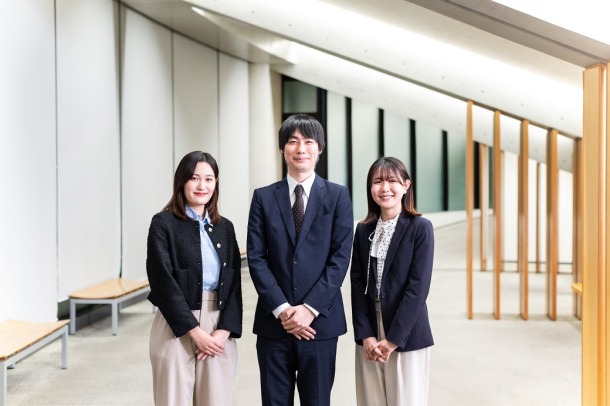
早稲田キャンパス8号館にて。左から、内藤さん、西川さん、福岡さん
早稲田大学の校友(卒業生)は、社会人としてどんな仕事をしているのでしょうか? 今回は、社会人になって1~2年のフレッシュな校友3人での座談会を実施! 就活をどうやって進めていったのか、何をきっかけに今の職場を選んだのか、仕事の楽しさややりがい、職場の特徴や福利厚生から今後のキャリアまで、就活と仕事のリアルについて赤裸々に話してもらいました。これから就活を始める、既に就活中の学生だけでなく全学生要チェックです!
INDEX
就活、その時何を考えた? 自分らしいキャリアの選び方
▼金融、大学、IT。それぞれの道を選んだきっかけ
▼「ガクチカ」は今の仕事にどう生きている?
キャリアのスタートライン 社会人としての成長
▼責任、やりがい、充実感。社会人と学生との違い
▼選んだ道の先で描く、多様なキャリアプラン
就活、その時何を考えた? 自分らしいキャリアの選び方
内藤 寛果(ないとう・ひろか)さん 東京海上日動火災保険株式会社勤務 2024年 商学部卒業
西川 昌良(にしかわ・あきら)さん 日本アイ・ビー・エム株式会社勤務 2023年 商学部卒業
福岡 咲歩(ふくおか・さきほ)さん 学校法人早稲田大学勤務(専任職員) 2024年 大学院法学研究科修士課程修了
金融、大学、IT。それぞれの道を選んだきっかけ
現在の仕事内容について教えてください。
内藤さん:東京海上日動火災保険にエリア総合職(※)として入社し、現在はグループ全体における海外事業の保険引き受けによって得られる利益成長に向けた企画立案を担当しています。チームで立案した企画を経営陣と相談の上、アクションに移していき、より良い成果につながるように努めています。
(※)2026年4月以降エリア総合職を廃止し総合職へ一本化します。新卒採用の募集も総合職のみとなります。
福岡さん:早稲田大学の職員をしています。所属しているのは、主にオープン科目を扱うグローバル・エデュケーション・センターという部署で、私はその中でも科目登録と成績を処理する業務を担当しています。
西川さん:日本IBMに所属していて、コンサルティング事業本部という部署でビッグデータ分析基盤の構築に関わっています。職種はITスペシャリスト、いわゆるエンジニアですね。
就職活動はどんな軸で進めましたか? また、どのような理由で就職先を選びましたか?
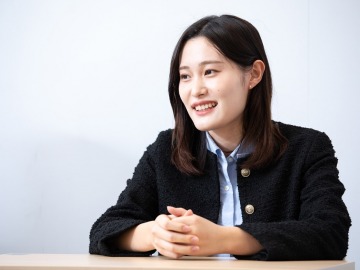
内藤さん
内藤さん:父が金融業界で働いていたことや、自分自身が商学部に所属していたこともあって、金融業界には元々興味を持っていました。中でも弊社を選んだきっかけは、中学時代まで力を入れていた水泳です。弊社は水泳の全国大会のスポンサーをしていて、そこに縁を感じていました。
また、金融業界の中でも、特に各分野のトップ企業に就職することを目指していました。業界トップの企業は戦略や経営が安定していますし、リーディングカンパニーとして、その業界をけん引するような新しい取り組みにもチャレンジしやすいからです。私自身、1位が好きというのもありますね。中学生の時、水泳で全国1位になった経験があって、とにかく負けず嫌いなんです(笑)。
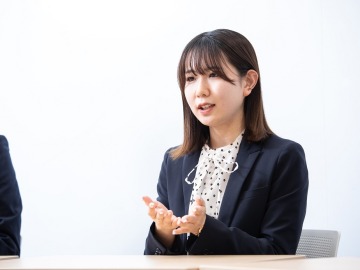
福岡さん
福岡さん:私は大学院を卒業し、早稲田大学に入職しました。実は就活では明確な目標がなかなか持てなかったんです。周りは研究者を目指したり民間企業に就職したりする人が多かったのですが、私自身はあまりしっくりこなくて…。シンクタンクや企業の法務系も選択肢として考えはしましたが、将来のビジョンが描けなくて。
私は自分の活躍よりも、誰かの支援をしたいタイプ。そこで指導教員に相談したところ、大学職員という道もあると教えていただきました。今の仕事は大学院でのティーチング・アシスタント(TA)などの経験も生かせて、学生をサポートできるのでぴったりだと思っています。
西川さん:私はIT業界に絞って就活をしました。日本IBMを選んだのは、大学3年生の時に参加したインターンシップでの経験が大きかったですね。インターンで出会った人たちはみんな、新しい技術に対する学習意欲が高くて刺激を受けましたし、調和を大切にして仲間と共に良い仕事をしようという会社の雰囲気が、すごく良かったです。
理系ではない商学部からエンジニアという道を意外に感じる人もいるかもしれませんが、IT業界に興味を持ったのは、早稲田祭運営スタッフを務めたことがきっかけなんです。2020年の早稲田祭は、コロナ・パンデミックの影響でオンライン開催になり、配信システムの構築が必要になって。そこで一から勉強してシステムを作ったのがすごく楽しく、IT業界を目指すきっかけになりました。
写真左:早稲田祭2021の中継やモーションキャプチャなどの技術を含めた複雑な配信システムを構築。配信の総再生回数は約35万回、最高同時視聴者数約7,000人を記録した
写真右:早稲田祭2021運営スタッフ役員のメンバー。右から5番目が西川さん
「ガクチカ」は今の仕事にどう生きている?
就活といえば、学生時代に力を入れていたこと、「ガクチカ」について聞かれることも多いです。
西川さん:私はやはり、早稲田祭運営スタッフの経験ですね。2年生の時は完全オンライン開催で、3年生の時は人数制限をしながらのハイブリッド開催でした。完全オンラインも大変でしたが、ハイブリッド開催はさらに難しかったです。システムを自分で構築したり、一人で作るのが難しいところは他の人にお願いしたり。どちらも違った大変さがありました。
内藤さん:学生時代の経験が、企業選択につながったんですね! 私は、企業によってガクチカの答えを変えていました。例えば「人生で1番頑張ったこと」なら水泳の話をした上で、やり抜く力や目標に向かって努力する力を強みとしてアピールしていました。一方で、大学時代に絞った質問に対しては、塾講師のアルバイトで生徒を第1志望校に合格させた経験をアピールしました。
福岡さん:私は刑法が専門なのですが、大学院で先生や学生と一緒に「AIやITを活用した判例分析ツール」を作るプロジェクトに携わっていて。理系の学生と協力しながら進めていくのですが、お互いに専門分野が異なるので、どうやって分かりやすく伝えるかに苦労したんです。その経験から、話をうまくかみ砕いて、専門分野の異なる人に伝える力が身に付いたことをガクチカにしました。
そうした学生時代の経験は、今の仕事にどう生きていますか?
内藤さん:「やり抜く力」が1番生きていると感じます。仕事の締め切りに間に合わせる、何としても自分でやらないといけないことに向き合うときなどに、これまでの経験が生きています。
福岡さん:法律を勉強する中で培った「ルールの中で最大の成果を出す」という考え方は、今の大学職員の仕事にも生きていると感じています。例えば、業務の中で学生から相談を受けることがあるのですが、大学のルールは守りつつ、学生にとって最適な解決策を探るようにしています。
法学研究科での勉強の様子。刑法を学び、修士論文では性犯罪について執筆した
西川さん:学生時代にチームで働く経験ができたのは大きかったです。それから、学び続ける姿勢を学生時代に身に付けられたことも良かったですね。変化の速いIT業界で働く上で、その姿勢はとても役立っています。
キャリアのスタートライン 社会人としての成長
責任、やりがい、充実感。社会人と学生との違い
社会人生活や仕事に関して感じたことは何ですか?
内藤さん:学生時代のアルバイトと比べて、やはり責任の重さは全く違います。会社の一員として世の中のために働き、お客さまから保険料をいただき、それが自分のお給料になる。自分自身の業務がそのサイクルを作り上げる一端を担っているのだと思うと、大きな責任を感じます。
一方で、自分で稼いだお金を好きなことに使えるのは充実感がありますし、評価されることでモチベーションも高まります。これは社会人になって良かったと思うところですね。
福岡さん:内藤さんの「責任」のお話は私もすごく共感します。他の点では、早稲田大学はとても規模が大きく、学生数も多いです。でも、学生一人一人を大切にしていて、問い合わせにも丁寧に回答したり、相談に対して適切な相談窓口を紹介したりしています。職員になったことで、それまで見えていなかった早稲田大学の良さが見えてきたのも良い意味でのギャップでしたね。
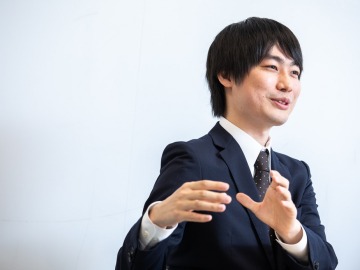
西川さん
西川さん:私は学生時代もシステムを作り、社会人になった今もシステム開発に携わっています。でも、同じシステム開発でもその目的は全く異なっています。学生時代は自分が思う良いものを作ればそれで良かったですが、今はお客さまにとって真に価値があるシステムを作っていくことが重要ですし、難しいところです。
そして、お客さまのビジネス成長に貢献することが社会貢献につながる。その点には大きなやりがいを感じています。手掛けるシステムは大規模なものが多く、世の中にもインパクトを与えられるからです。
働き方についてはどうですか?
内藤さん:弊社は休みを取りやすく、また、年に2回の5連休取得が必須で、土日や祝日をつなげれば9~10連休にすることもできます。私は昨年海外旅行を7回しました。また、時差出勤制度もあって、柔軟な働き方ができます。とてもワーク・ライフ・バランスの取れた職場だと思います。
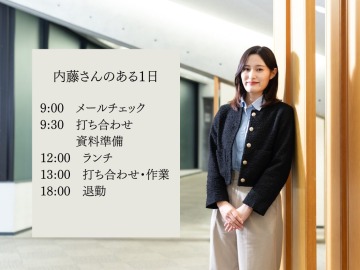
福岡さん:いいですね! 早稲田大学も休みはとても取りやすく、自分のために時間を使うことに寛容な職場だと感じます。育休も取りやすく、私の部署でもお子さんがいる方が当たり前に時短勤務をしていて、子どものお迎えで早く退勤したり、在宅勤務をしたりと、そういった光景が日常になっているからこそ長く働ける職場だなと感じます。
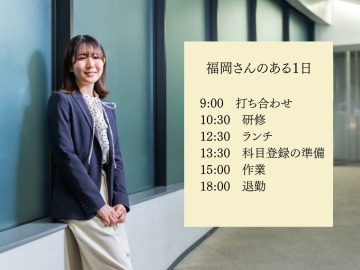
西川さん:私はエンジニアという仕事柄、プロジェクト単位で動いています。一つのプロジェクトが終わると、少し期間が空いて次のプロジェクトが始まります。その空いた期間であれば、まとまった休みを取りやすく、私もこの4月に海外旅行に行きました。
また、女性だけでなく男性も育休などしっかり取得しています。それから、ブルーポイントという感謝の気持ちを送り合う制度もあります。社員同士でポイントを送り合い、そのポイントをためてカタログギフトのように景品と交換できるんです。
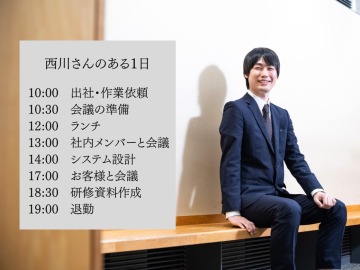
選んだ道の先で描く、多様なキャリアプラン
今後のキャリアプランについて教えてください。
内藤さん:これからも引き続き、海外系の業務に携わっていきたいと考えています。将来的には海外赴任も視野に入れていますが、まずは今の部署でしっかりと力を付けていきたいですね。
福岡さん:早稲田大学は本当に大きな組織なので、私もまだまだ分かっていないことが多く、当面は大学についてしっかり理解を深めていきたいです。その上で、将来は自分自身が大学職員になった出発点でもある研究支援に携わっていきたいと考えています。研究者を目指す学生が1人でも増えてくれたらうれしいですね。
西川さん:常に新しい技術を学び続けていきたいと考えています。そしてエンジニアとして、お客さまに貢献できるような人材になりたいです。
最後に、就活生にメッセージをお願いします。
内藤さん:就活はいつ終わるか分からないし、不安な気持ちが続くと思います。ただ、就活って最終的には“ご縁”です。ご縁のある企業は必ずあるので、自信を持って取り組んでほしいですね。
福岡さん: 就活は、どこか身構えてしまうものだと思います。でも、そこで1回肩の力を抜いてみて、ざっくりとした直感で決めてみてもいいんじゃないかなと思います。就活のために何かに取り組むのではなく、自分が好きなことや、自分の力を発揮できるものに力を入れてほしいです。
西川さん:私はコロナ・パンデミックでの早稲田祭という、ひょんなことから自分の道が見つかりました。皆さんもぜひ大学時代にいろいろなことに挑戦して、楽しんでほしいです。早稲田大学は多くの挑戦ができる環境ですから。それが就活につながればラッキーくらいの気持ちで行動してみてほしいです。
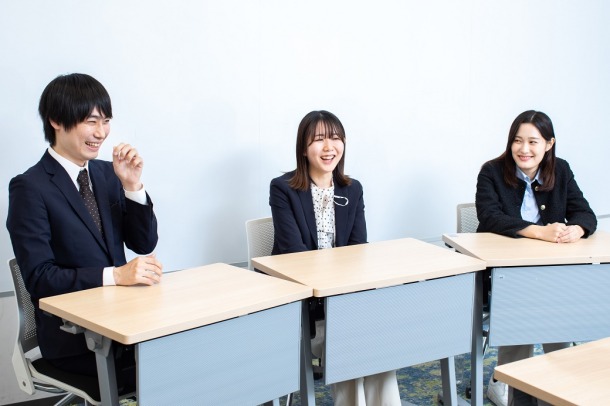
取材・文:山田井 ユウキ
撮影:布川 航太
【次回フォーカス予告】6月9日(月)公開「ICC(異文化交流センター)特集」

